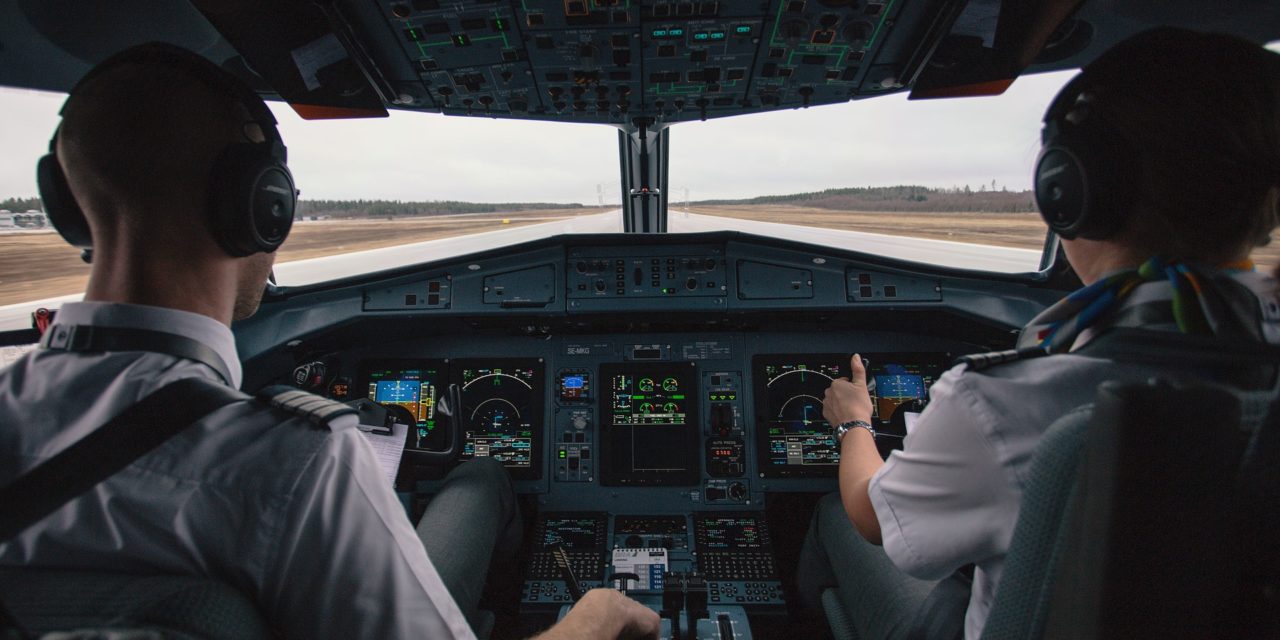A pilot course is a great way to get out of your comfort zone and see what you are really made of. Being a pilot is a great career choice or an exciting hobby. But in order to be successful, it’s important not to make mistakes. In this article, we’ll go over five of the most common mistakes that student pilots make. This list isn’t all-inclusive, but it will give you a good place to start so you don’t have any unpleasant surprises along your journey.
- Not studying at home, and not being prepared for lessons
This is by far the most common mistake made. A lot of people assume they will have more time to study at home, but this never ends up being true. As soon as your course begins, it’s an uphill battle against the clock. You can’t skip class or stay out too late on school nights because you have homework due, and your weekend time is just as limited.
If you don’t prepare for your lessons ahead of time, you will have a tough time catching up, and it will be impossible to enjoy any downtime between classes. The best thing you can do before taking your first lesson is to have a study schedule laid out so that you know how much time to allocate for each subject. That way, you can plan your downtime efficiently.
- Not paying your course tax on time
This is a big mistake. Your course comes as a package, and you have to complete all lessons as required in order to receive your full pilot license. In order to receive your plane time, you have to pay for the whole course upfront, including your course tax on time. If you’re late with your payments or if you miss a payment altogether, there are consequences.
If you are too late with your payment, the school has the right to discontinue your lessons. You will have no way of getting back that time or getting reimbursed for it. If you are even one day late with a payment, do not assume that just because you are still attending lesson, there won’t be consequences. They will most likely charge you a late fee, and the payment will continue to add up until you pay or make other arrangements.
If your course requires monthly payments, for example, for an aircraft rental, always be sure to schedule them in advance so that they are paid on time. If you need assistance with this, it’s best to contact your instructor right away, or to get a loan the same day.
- Buying a low-quality or uncomfortable headset
This is a common mistake. Many student pilots buy the cheapest headset they can find, not realizing that they will use it for several years. And after spending so much on their lessons, many people want to cut costs here and there. But if your headset doesn’t fit properly or isn’t comfortable, you won’t be able to enjoy flying, and you will end up spending more money in the long run.
The first thing you should do when buying a headset is to be properly fitted for it. The salesperson can help you find one that fits your head well and offers high-quality sound with minimum background noise. And don’t forget about comfort; after wearing your headset for a while, you want to make sure it doesn’t feel uncomfortable.
- Not asking questions
This is a big mistake. Ask as many questions as you can before and during your lessons so that you know what to expect. Go over any topics or subjects that seem unclear, and ask for advice if you are having trouble with something. It’s always better to know beforehand than to face surprises on the day of your practical exam. Your instructor is there to help you, so take advantage of that.
This mistake can be very costly if not corrected in time. If you are struggling with understanding the material or feeling prepared for your check-ride, speak up right away and ask your instructor for help before it’s too late. Remember that your instructor is there to help you, and they want you to succeed just as much as you do.
- Being too tense, and having too firm of a grip
It’s common for people to feel nervous before their first lesson, but it can be a bad thing if you are too tense or if your grip on the controls is too hard. If you are too tense, not only will it make flying more difficult for yourself but also for your instructor. It’s recommended that you relax your body before you go up in the air and that you don’t squeeze the yoke too hard. Even if you are nervous, keep this advice in mind, as it will make learning to fly easier for everyone involved.
Conclusion
Being a good pilot is not easy; it takes lots of hard work and patience. However, learning to fly is one of the most rewarding careers you could opt for. So if you are interested in taking a pilot course, keep these mistakes in mind and learn from them.


